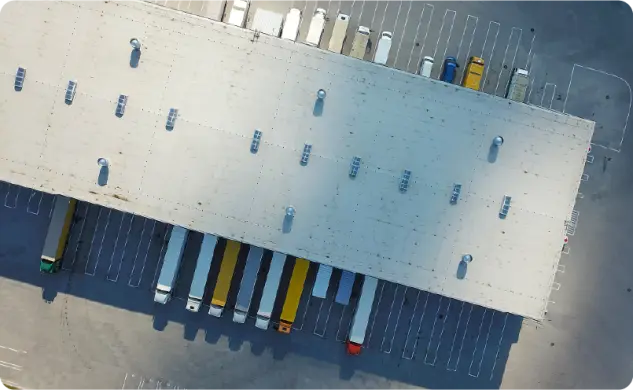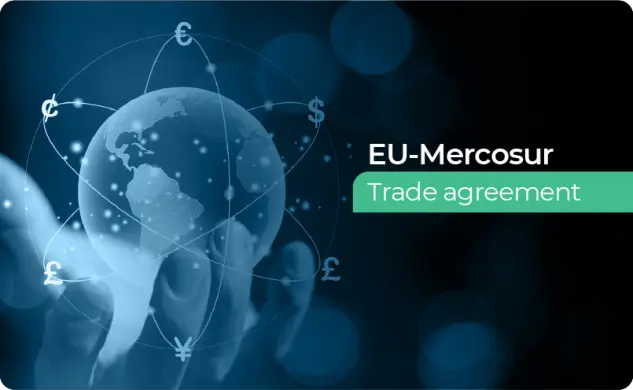Understanding the French ELO requirements: What businesses moving goods through France need to know.
- Wed, May 21, 2025
- 3 minute read
- Updated on: 7/8/2025

What is ELO?
ELO, or ‘Enveloppe Logistique Obligatoire’, is a new French customs framework that consolidates all relevant border documents into a single digital envelope. This envelope is represented by a barcode, simplifying the customs verification process. ELO will be enforced at major RoRo ports, including Calais, Dunkirk, and Le Havre, which handle the majority of UK–France freight traffic. Compliance with ELO is especially critical for businesses using these routes to avoid delays and ensure smooth border operations.
ELO implementation timeline
The rollout of the ELO system follows a two-phase schedule:
- 28 April 2025 marked the start of the voluntary period, during which operators can begin using ELO to familiarise themselves with the system and resolve any integration or compliance issues. During this phase, presenting an ELO at every Brexit Smart Border crossing is encouraged but not yet mandatory.
- 1 September 2025 will mark the start of mandatory enforcement. From this date forward, all applicable movements between the United Kingdom and France will require a valid ELO reference at the point of entry.
Businesses that fail to comply by the deadline may face delays at the border, increased scrutiny, or refusal of entry for goods. With ELO becoming a mandatory part of customs procedures, compliance is not optional – it's essential to maintain uninterrupted trade flows, avoid penalties, and uphold your reliability as a supply chain partner.
‼️ Important update: The mandatory enforcement date, originally set for 1 September 2025, has been postponed until fall 2025. The exact end of the transitional period will be confirmed by French Customs in September, giving operators and ferry companies more time to adapt.
Key features of the ELO system
At its core, ELO is designed to simplify and centralise customs documentation by grouping all relevant documents under a single digital envelope, represented by a barcode or ELO number. This approach reduces the risk of missing or mismatched documentation. ELOs must be created by a registered declarant or service provider with access to the French Prodouane portal. This includes customs representatives, logistics firms, or any designated operator responsible for consolidating MRNs and other required data.
One critical requirement during the transition period is that only ICS2-compliant Entry Summary Declarations (ENS) will be accepted within an ELO. This means economic operators must already be aligned with the EU’s new Import Control System 2, which became mandatory in March 2024 for most transport modes.
Another important element is that the ELO must be created before the goods arrive at the French border. Responsibility for creating the ELO lies with a designated party – usually the logistics provider, customs agent, or freight forwarder – who gathers the necessary MRNs and customs information and submits them via the French Prodouane platform.
‼️ Important update: During the extended transitional period, two new versions of the ELO and Brexit IT systems will be deployed. The first will integrate with DELTA IE Export/SDS (national systems connected to AES), while the second will add ICS2 fallback capabilities and accommodate specific trade flows. Detailed delivery schedules will be shared in September 2025.
Requirements and actions for economic operators
To comply with the ELO regulation, businesses involved in UK–France freight movements should begin preparations as early as possible. This includes ensuring that all actors in the supply chain – exporters, carriers, customs brokers – are aware of the upcoming requirements and have access to the necessary tools.
Operators must ensure they are registered with Prodouane, the official portal of French Customs, in order to submit and manage ELOs. The designated ELO creator will need to collect all required MRNs for a shipment and compile them into a valid ELO submission. Once generated, the ELO barcode should be shared with the driver or transport company, as it must be presented at the border.
Coordination between parties is key. Since the ELO may include documents created by different stakeholders (for example, a transit declaration from one company and an ENS from another), clear communication and document sharing protocols must be in place.
Why ELO matters
The ELO system represents a significant step toward digitalising and harmonising customs procedures across EU borders. For businesses, it promises fewer delays, improved compliance, and reduced paperwork at one of the busiest trade gateways in Europe. However, these benefits will only be realised by those who take the time to prepare.
While the system is currently optional, the mandatory deadline is fast approaching. Companies that begin adapting now will avoid last-minute disruptions and ensure their goods continue to move smoothly across the Channel.
Official guidance
Related News & Articles
Get our expert insights and customs resources delivered straight to your inbox
By subscribing, you consent to be contacted by Gaston Schul about our relevant content, products and events. You can opt-out at any time. For more information, please see our privacy policy.




